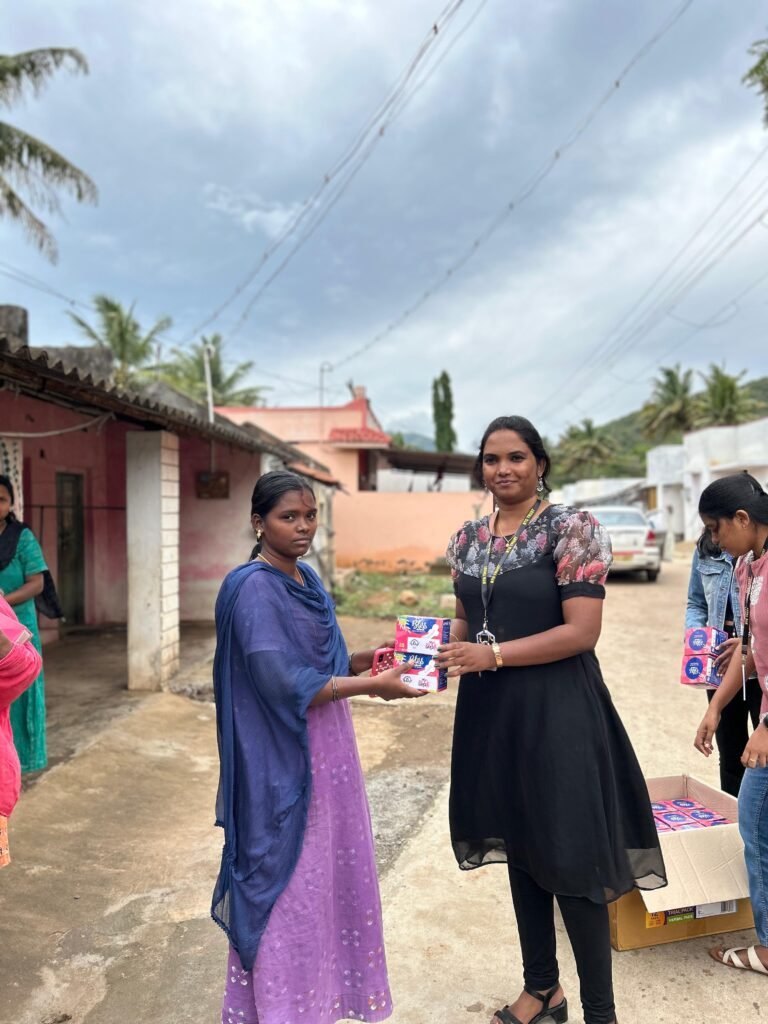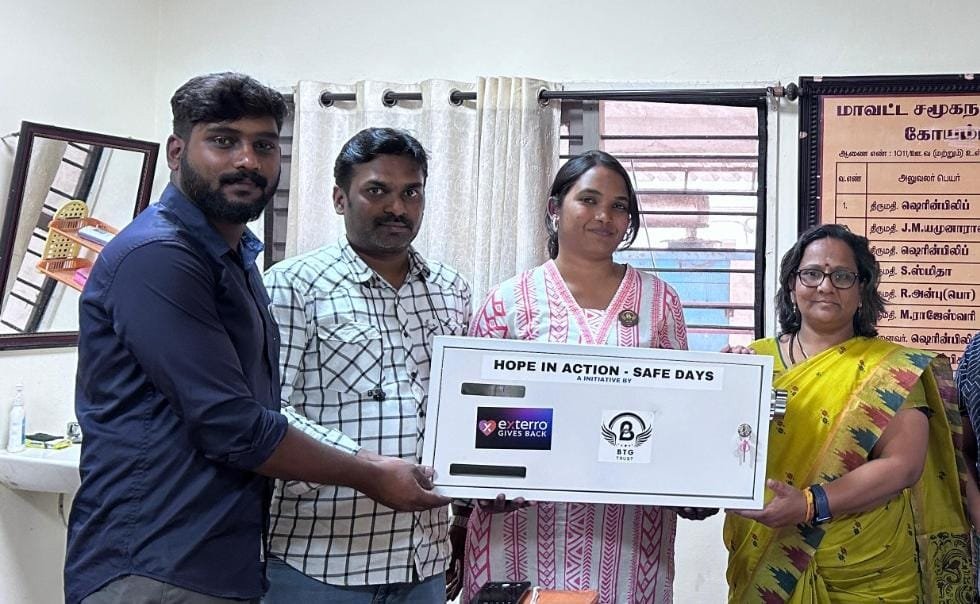In observance of Menstrual Hygiene Day 2025, BTG Trust, in collaboration with BlissPads, launched a vital outreach initiative in the tribal villages of Thuvaipathi and Thekkalur. The program focused on enhancing menstrual health management through the distribution of 100 eco-friendly sanitary napkin kits to 50 tribal women. These kits, donated by BlissPads, provided sustainable menstrual solutions while addressing environmental concerns. Alongside distribution, BTG Trust conducted educational sessions on menstrual hygiene, safe practices, and eco-conscious disposal methods. This initiative, under the broader SafeDays project, aimed to break stigma, promote menstrual dignity, and empower women with knowledge. The event emphasized cultural sensitivity and community engagement, ensuring inclusivity and respect. It also laid the groundwork for sustained grassroots health interventions in underserved regions. Through collaborative efforts with volunteers and local stakeholders, the outreach helped foster openness around women’s health issues. Women gained access to safe hygiene products for several months, improving their overall well-being. The awareness sessions further increased understanding of hygiene and environmental sustainability. The event helped normalize conversations around menstruation in remote areas. It strengthened the Trust’s relationship with tribal communities. BTG Trust remains committed to menstrual equity and sustainable health practices. The event was a significant step toward inclusive public health.
HOPE IN ACTION – SAFE DAYS
As part of its ongoing commitment to women’s health and dignity, BTG Trust implemented the Hope In Action – #Safe Days initiative by installing a sanitary napkin vending machine at the Social Welfare Department, Coimbatore. Supported by Exterro, the initiative benefits over 1,200 women, including staff, beneficiaries, and visitors, by ensuring discreet and consistent access to menstrual hygiene products. This effort promotes health, fosters awareness, and offers a scalable model for integrating menstrual hygiene infrastructure within public institutions.


